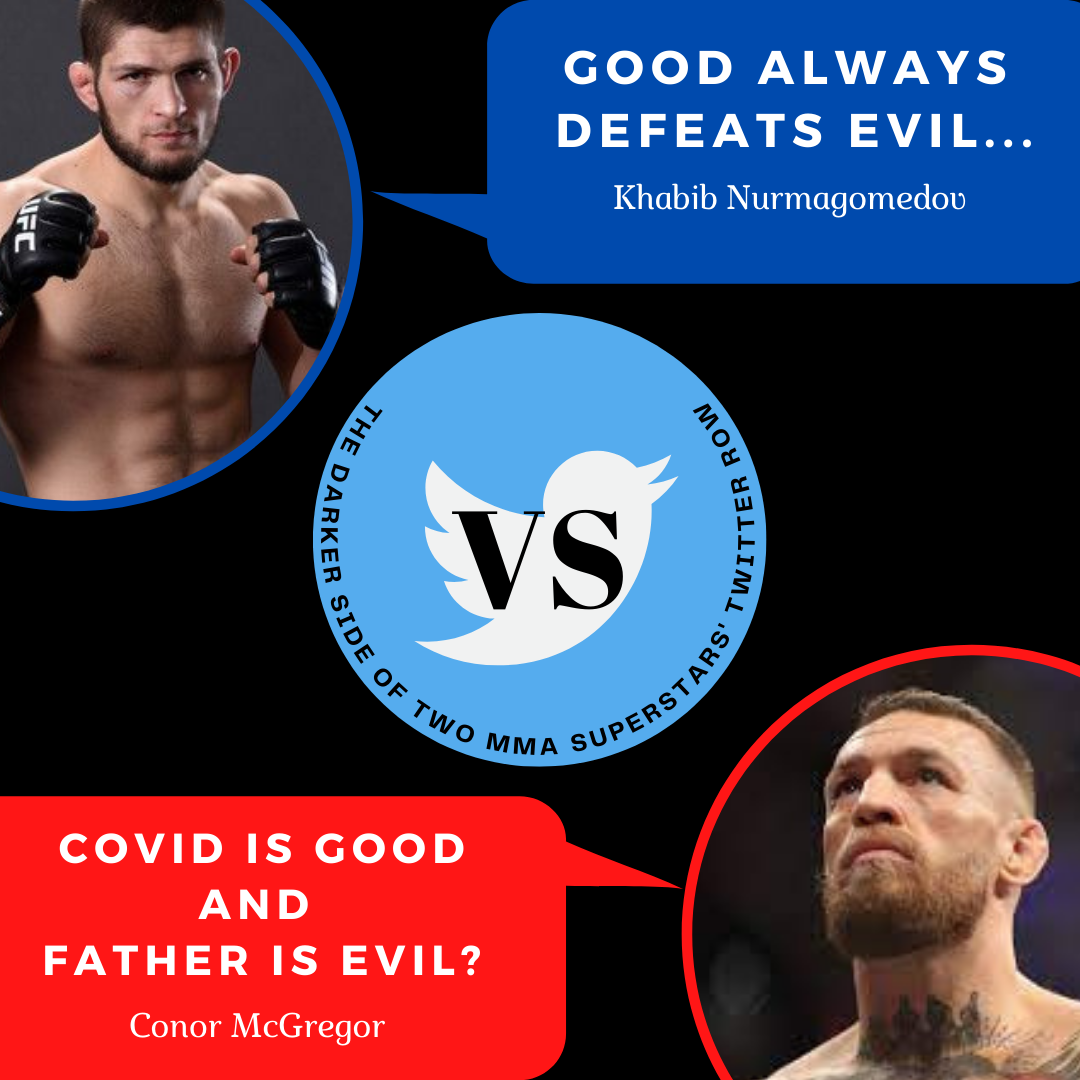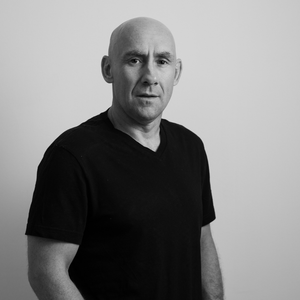
Twitter rows: generally I avoid them.
There is more to life than peeking at others’ disgruntlement through the myopic holes of social media. I prefer the grandmotherly advice to leave each to their own views and opinions: ” As long as they ‘ain’t troublin’ you.”
Yet this keyboard war between rival mixed martial arts superstars, Conor McGregor and Khabib Nurmagomedov, caught my eye. It bothered me. It wouldn’t let me go.
Don’t get me wrong, it hasn’t kept me up at night, but something about the whole affair felt ‘off’. Moreover, it was the reaction of people to the tweets that troubled me, people that I expected to know better.
For those who know nothing of these combat art athletes, let me offer some salient details as background:
Conor McGregor is an Irish mixed martial arts, multi-millionaire superstar. He is famous for, alongside his combat skills, his brash, though insightful, ‘trash talk.’ He has irked his way under the skin of too many opponents to keep count. For a comparative frame of reference, think 80s tennis legend John McEnroe.
Khabib Nurmagomedov is an equally famous Dagestani mixed martial arts superstar. He is not revered for his outspoken ways, but for his undefeated fight record, work ethic and commitment to his family, friends and religion. Reference: McEnroe’s nemesis, Björn Borg.
The contrast between the men could not be greater.
After much back and forth on social media over several years, McGregor and Nurmagomedov finally faced each other in the ‘Octagon’ (the name of the ‘ring’ in which they would settle their differences.) Nurmagomedov dominated McGregor to a resounding win.
Suffice it to say, it’s unlikely they’re on each others Christmas card list.
Fast forward to this year: McGregor is scheduled to fight another opponent, American Dustin Poirier. McGregor and Poirier share one win each. This match is the decider. This one is for bragging rights.
McGregor ramped up his trash-talking to the max. Poirier smiled and nodded throughout. They met in the middle of the Octagon again. “Let’s see who’s best,” they said.
Poirier was arguably dominating the fight until McGregor stepped back and broke his leg. It was a freak accident. He could not continue. Poirier won by default. They are the rules in mixed martial arts. The fighters know the rules by which they play.
Following the fight, Nurmagomedov took to Twitter to say this of the outcome:
“Good always defeats evil.”
Later, McGregor responded with this:
“Covid is good and father is evil?” (Nurmagomedov’s father had recently died of Covid related symptoms.)
And that’s when the trouble began.
The mixed martial arts corner of the internet exploded with condemnation for McGregor’s tweet. Much of it was from Nurmagomedov fans, some of it was from professional pundits. The long and short of the anger was that: “McGregor has gone too far this time. He’s gone mad. What sort of ‘evil’ attacks the honour of a dead man.”
In my latest book, ‘How to be a Buddhist Millionaire’ I include a section titled, ‘Why do bad things happen to good people?’ I’m guessing it’s my deep relationship with this subject that initially piqued my interest in these tweets.
It was the opinion of one particular pundit that made me look closer at what I was seeing, examine what I was reading, consider further what was being said. One of the first rules of journalism, whether it be cage side punditry, a column in the Times or a feature for National Geographic, is to express a ‘balanced view’.
On one level, the outrage at McGregor’s lack of subtlety in his tweet is understandable. My father is currently in stage four lung cancer; I too would be upset if someone used him as a weapon, albeit an obtuse one, in a twitter fight.
On another level, though, the lack of focus on Nurmagomedov’s tweet is equally reprehensible and worryingly overlooked.
No one it seemed, except McGregor, was examining the truth of Nurmagomedov’s post: “Good always defeats evil.” Not only were they not questioning the Dagestani’s initial comment, they condemned the Irish man, not only for his response, but for his right to question the statement with a strong and valid question.
To clear a way to see the underlying premise behind these two tweets, let us reword McGregor’s question so as not to insult the honour of Nurmagomedov’s father further.
“Good always defeats evil.”
“Cancer is good and sufferers are evil?”
“Good always defeats evil.”
“Fraudsters are good and homeless people are evil?”
“Good always, defeats evil.”
“ALS is good and Lou Gehrig is evil?”
None of the questions challenging the statement are easy to digest, yet they would not be possible if it weren’t for the statement itself: “Good always defeats evil.” I couldn’t see anyone online, except McGregor, challenging Nurmagomedov’s stance. I wondered why.
It was easy to understand the fan’s vitriol at the mud McGregor was seemingly slinging at their hero, that’s a fan’s ‘role’ after all. What I couldn’t fathom was how none of the ‘professionals’ were shining the light on Nurmagomedov’s pious stance or attempting to offer an impartial view. Although McGregor’s citing of Nurmagomedov’s father was indeed insensitive and ill timed, it was arguably the Dagestani’s question that forced the hard-to-chew response.
By the logic of Nurmagomedov’s tweet, (Good always defeats evil), it is acceptable to say that Cancer is ‘Good’ (because it is still prevalent, still ‘winning’) and that the patient who dies of it is ‘Evil’ (because they ‘lost.’)
Of course, when framed in this light, the statement is nonsense. Worse, it is trite, lazy and disrespectful to all the people who have fallen to the terrible things that life throws at us: illness, poverty, violence, starvation, genocide, racism… the list goes on and on. But it is a statement from a fighter, not a pundit or journalist, and with that detail must include a certain degree of ‘turning the other cheek.’
My point here is not to defend or attack either mixed martial artist. They are grown men. Neither need, nor I suspect, would want me in their corners. What interests me infinitely more than sporting celebrities’ social media feeds is the responsibility of pundits to present an objective, non-partisan view.
Right now, the world is in turmoil. Our grandparents lived through a world war, but for the rest of us, the current pandemic climate is the first major global obstacle we have had to face. At this moment, we don’t need division, but unity. We don’t need anger, but compassion. We don’t need judgement, but understanding.
The willingness to share a moment in ‘someone else’s shoes’ is the only way to foster understanding: to hear their opinions, to listen to the questions they ask, and to ponder the responses. In the spirit of striving for mutual understanding, wouldn’t it have been more enlightening to equally and fully consider both corners’ views: Khabib’s statement, Conor’s challenging of it?
Isn’t it the responsibility of the pundits, professionals, those on the microphone, to help us achieve that ‘balanced’ view? If not, should we, the audience, insist they sit down and answer some more questions:
1. Why did you so easily accept a blanket statement that is factually incorrect?
2. Why did you so easily condemn a question that raised a valid flaw in that statement?
3. Are you cut out to be an objective pundit/ journalist/commentator?
Whatever the question, whatever the answer, all views and beliefs are valid given the context from which they spring. “Each to their own,” as Grandma said. But I wonder if those on high platforms, those with the opportunity to sway a baying crowd, should be more careful to stick to the code of ethics that guide journalists: fairness and balance.
And what if those in the limelight can’t commit to impartiality and professionalism? What if they are just as mortal and fallible as the rest of us fans? Well, that’s fine, but then they must hand over the mic, grab a beer and join us up in the stands where we are free to talk smack until the sun goes down.
